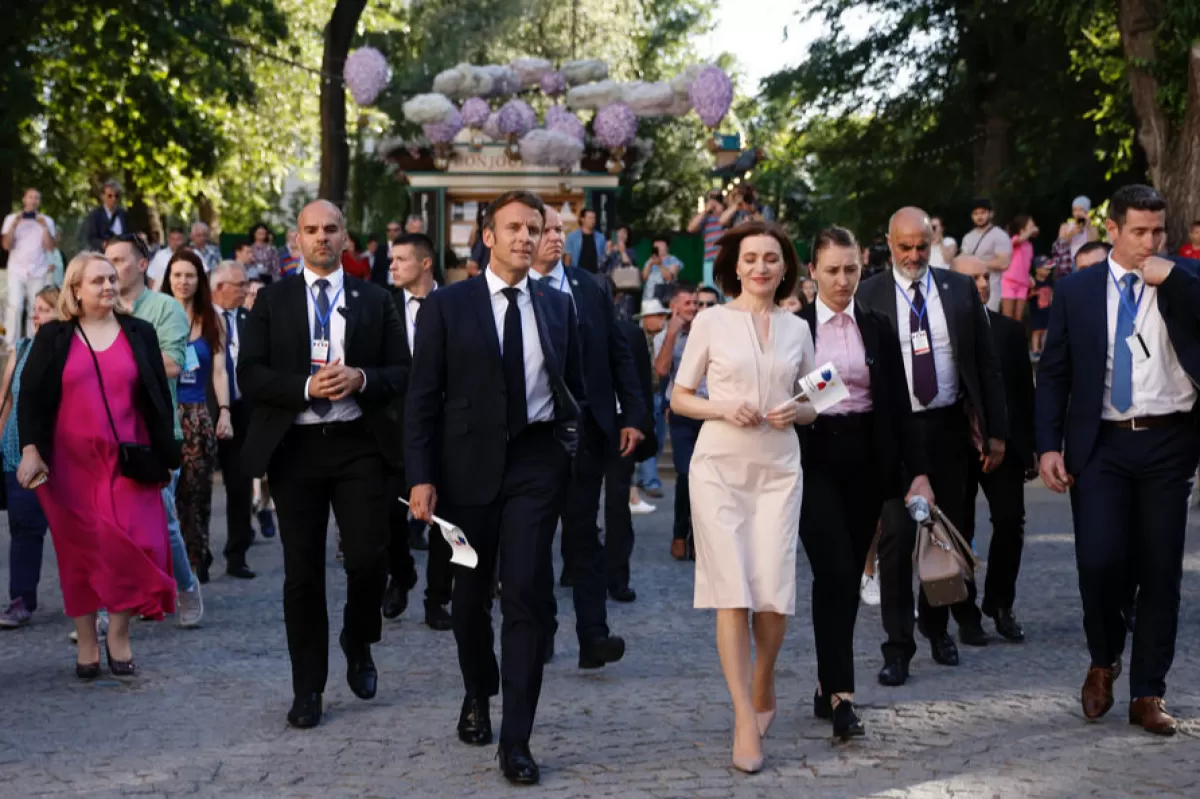
The security context and the political will in Chisinau were the main valid arguments used by Romanian diplomacy in supporting the Republic of Moldova on its European path.
The Republic of Moldova managed, in less than four months, from March 3rd till June 23rd, to shift from the status of country that officially applied for EU membership to that of candidate country. By comparison, the Western Balkan states received a clear European perspective from Brussels 19 years after the EU Thessaloniki Summit in 2003.
The global donor platform
The latest episode in this regard took place late last week, on July 15, in Bucharest, at the second Ministerial Conference on the International Moldova Support Platform. The heads of the Romanian, German and French diplomacies again contributed to raising no less than 615 million euros. About two thirds of this amount will go to Chisinau in the form of grants, namely non-reimbursable funds amounting to 432 million euros, the rest being loans with interest rates advantageous for Chisinau.
“The conference in Bucharest takes place three weeks after the participants in the meeting of the European Council, held in late June, decided to grant the Republic of Moldova the status of candidate for EU accession. It is a historic decision, which effectively launches the process of European integration of the Republic of Moldova, and this Support Platform becomes an efficient, concrete tool for carrying out the necessary reforms in this regard”, the Romanian Foreign Minister Bogdan Aurescu said.
The Republic of Moldova needs financial support for the reforms it plans to implement, but also to get rid of its total energy dependence on Russia. Given that Gazprom can stop the supply of gas to the Republic of Moldova at any time, against the background of non-fulfillment of the terms of the mutual agreement on the audit of Moldovagaz's debts to Gazprom, securing strategic reserves is vital.
Infrastructure projects are also vital - mainly the bridges to be built over the Prut, but also the rebuilding of the educational infrastructure in the Republic of Moldova.
The event, recently held in Bucharest, came in line with the efforts of April 5 in Berlin, when the Republic of Moldova was promised 695 million euros in the form of grants and loans from donors.
From application to status: the Kyiv-Chisinau-Brussels route
The application for EU membership submitted on March 3 by the Chisinau authorities was the first step in a very complex process. At first, Kyiv did not welcome this move, directly or veiledly accusing Chisinau of fraudulently boarding Ukraine's “high-speed train to the EU”.
Romania's lobbying counted in the economy of the process, stressing that the step was a correct one that had to be taken by the Republic of Moldova as well, not only by Ukraine, a state at war with Russia on the borders of the EU and NATO.
This was followed by the completion of the questionnaires required by the European Commission to technically approve the Republic of Moldova as a candidate country for EU accession. In about a month, two questionnaires with over 3,000 questions were filled in by the Chisinau authorities, including with Romania’s support.
Diplomats in Chisinau and Bucharest joined efforts to persuade the European states, despite the reluctance of the Netherlands, Austria and Denmark.
On 23 June, the European Council decided, on the basis of a positive opinion from the European Commission, to grant the status of candidate countries for EU membership to Ukraine and the Republic of Moldova.
The most important reforms the Republic of Moldova committed to implementing will be in the field of justice. What we need is not a superficial, “Potemkian” reform, but a real, profound one. There is a need for strong and independent institutions, and to free the magistrates from political control.
Here, too, Romania can help. The future magistrates of the Republic of Moldova could be trained to replace those who will not pass the integrity exam initiated under the extraordinary evaluation procedure known as “vetting”. This involves the creation of an integrity filter that all the almost 2,000 magistrates - judges and prosecutors - in the Republic of Moldova will have to go through.
Last but not least, Bucharest insisted that the Republic of Moldova be included in the final declaration of the NATO summit in Madrid that took place at the end of last month. NATO is committed to assisting the Republic of Moldova with “political and practical support” in order to strengthen military resilience, which also guarantees political independence.
Bucharest must support Chisinau during this period, in order to strengthen democracy in the Republic of Moldova and security at the EU and NATO borders, until this state joins, in the coming years, in an optimistic scenario, the member countries of the European Union.


